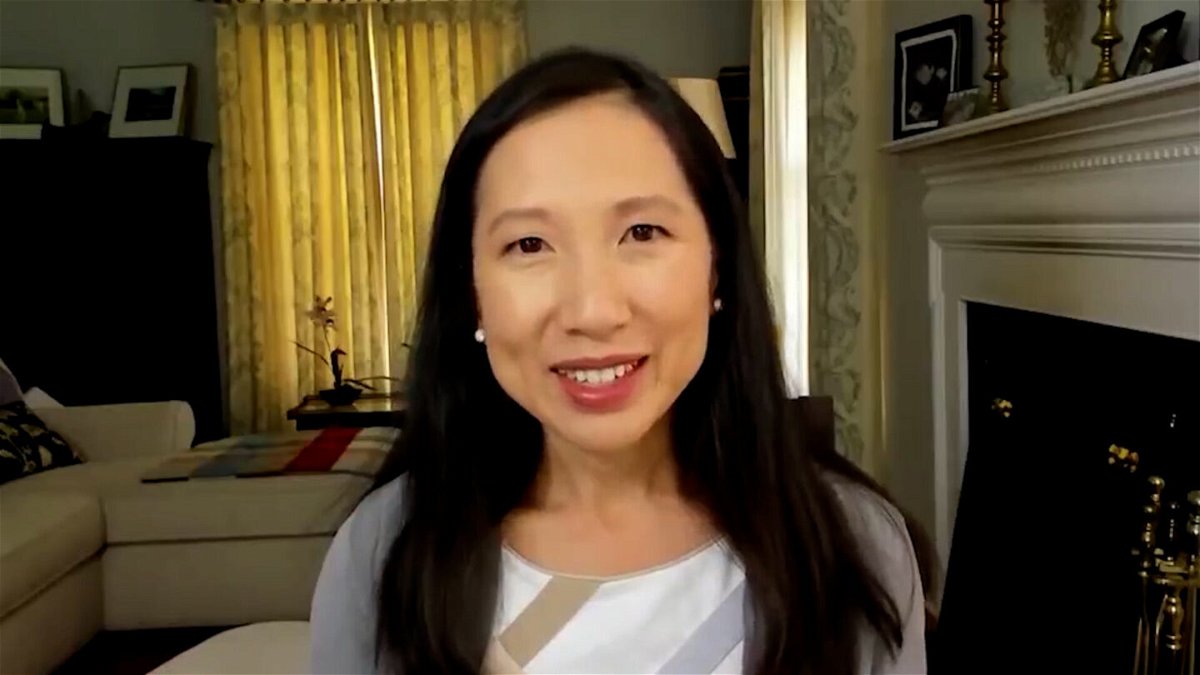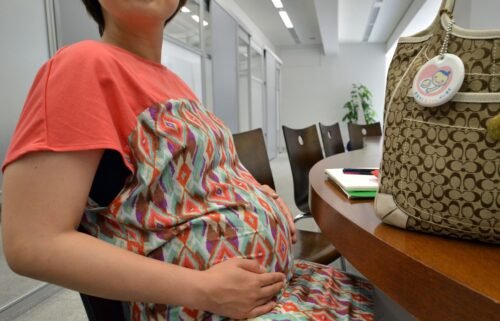When could Covid-19 vaccines be available for younger kids? An expert weighs in

CNN Medical Analyst Dr. Leana Wen speaks about Pfizer announcing that its Covid-19 vaccine for 5- to 11-year-old children is safe.
By Katia Hetter, CNN
The initial results are in: On Monday morning, Pfizer announced that its Covid-19 vaccine for 5- to 11-year-old children is safe and resulted in a robust antibody response.
This is news many parents have been eagerly anticipating — but what exactly does this mean for when vaccines could be available for this age group? What about kids younger than 5? Should parents be trying to get their young kids vaccinated now? And with the news that some older and higher-risk Americans could be getting booster shots soon, should parents be trying to get themselves a booster dose?
To help with these questions, we spoke with CNN Medical Analyst Dr. Leana Wen. An emergency physician and visiting professor of health policy and management at the George Washington University Milken Institute School of Public Health, she is also author of a new book, “Lifelines: A Doctor’s Journey in the Fight for Public Health,” and the mother of two young kids.
CNN: What exactly is the news from Pfizer about their vaccine for younger kids?
Dr. Leana Wen: The Covid-19 vaccine is currently authorized only for children ages 12 and older, but studies have been ongoing for the vaccine in younger kids. On Monday morning, Pfizer announced the first results for children ages 5 to 11 years old. In a study involving 2,268 participants ages 5 to 11, they found that the vaccine is, first of all, safe. The side effects are similar to what’s seen in older groups. Also, they found that the vaccine induces a strong antibody response. This is very significant because a smaller dose is being used — 10 micrograms compared to 30 micrograms for the older age groups.
The study does not show that the vaccines prevent infections or severe illness in younger children. That data is still being collected. However, based on what we have seen in the older age groups, antibody response is a good correlate to immune protection.
It’s also important that no one in the study group got myocarditis, which is the inflammation of the heart muscle that is seen as a rare side effect of the vaccine, particularly in adolescent and younger males. This side effect is so uncommon that it would be unlikely to show up in a study of 2,268 participants. If it shows up at all, it might not be until hundreds of thousands or even millions of people in that age group get vaccinated.
CNN: Are these results a big deal?
Wen: Yes. They are the first results thus far in this 5- to 11-year-old age group, and they are very promising. Many parents have been eagerly awaiting exactly these results, because we are eager to vaccinate our children. This is particularly critical given where we are in the pandemic.
Nearly 30% of new Covid-19 infections are in children. Nearly half a million kids have gotten infected with coronavirus in the last two weeks. Many kids are back for in-person schooling in places that have not implemented necessary preventive measures like requiring indoor masking. Parents are eager to protect their children, and getting this initial set of results provides a lot of hope that vaccines could be authorized soon for younger kids.
CNN: What’s next — when might the vaccine actually be authorized for 5- to 11-year-olds?
Wen: Pfizer has yet to submit their data for authorization by the US Food and Drug Administration. That’s the next step, for Pfizer to officially apply for emergency use authorization for this younger group. The FDA will then review all the company data, convene an independent committee of advisors, and make a decision on whether to authorize the vaccine for this 5- to 11-year-old group.
Note that the authorization is not a foregone conclusion. It’s possible that the FDA could also come back to Pfizer and ask for more data or authorize it only for a subset of this group — for children with underlying medical conditions, for example. So far, we only have an announcement from the company about the results, and we need to await the full data release by Pfizer.
Dr. Scott Gottlieb, former FDA commissioner and a current board member of Pfizer, has said that the FDA could authorize the vaccine for the 5- to 11-year old group as early as the end of October. That means, in a best-case scenario, some shots could be going into arms by Halloween.
CNN: And what about younger kids — when might vaccines be available to them?
Wen: Studies are ongoing for children as young as 6 months old. Pfizer has said it expects to have these results by some time this year. Assuming that it takes an additional three to six weeks for the FDA to review the data, I’d anticipate that we won’t have vaccines for kids 4 and younger until early 2022. This is something I’m eagerly awaiting myself, as the mom of a 1-year-old and a 4-year-old.
CNN: What questions should parents be asking now to decide whether they should get their younger kids vaccinated?
Wen: Children 12 and older are already eligible to be vaccinated, and I’d urge parents to get their kids in that age group vaccinated now. About half of kids 12 and older have already received one dose of the vaccine, and we know it is safe and effective in this age group. For younger kids, I’d say to wait until we see the data from Pfizer and the FDA reviews it. We want to make sure that our federal health officials do their job to ensure that the vaccine for those 5 to 11 years old is safe and effective.
CNN: I’ve heard of some parents pretending their younger kids are 12 years old to get them vaccinated sooner. Should they do this?
Wen: No, and in fact, the FDA has explicitly warned against this move. Note that younger kids are tested with a lower dose of the vaccine than older kids. Also, I think it is a matter of weeks before those in the 5- to 11-year-old group may have access to the vaccine. I’d really urge parents to hold off until there is authorization for the younger group. In the meantime, let’s continue to protect our kids through other measures, including sticking to outdoor-only gatherings with people who are unvaccinated and adhering to indoor mask-wearing in schools.
CNN: Now that booster shots are being made available for some Americans, should parents of young, unvaccinated kids try to get them?
Wen: The FDA advisory committee has recommended that booster doses of the Pfizer vaccine be made available for those who received the Pfizer vaccine and are 65 years and older, as well as those who have risk for severe outcomes from Covid-19. Also, third doses are available for those recipients of the Pfizer and Moderna vaccines who are moderately or severely immunocompromised.
The reason for the boosters is to increase immune protection against breakthrough infections and against severe infections. There isn’t data yet to suggest that a third dose will reduce transmission of Covid-19. The US Centers for Disease Control and Prevention will make a determination later this week about what exactly constitutes those risk factors.
Some parents who are, for example, frontline workers or who have severe underlying conditions themselves may be eligible for boosters, but I don’t think that being a parent of young kids will, in itself, qualify someone. That’s because we don’t yet know whether getting a booster will reduce the likelihood of them transmitting to others, including their children.
That said, if parents or other family members are not yet vaccinated with their first doses, they really need to get vaccinated now, to protect themselves and their family.
The-CNN-Wire
™ & © 2021 Cable News Network, Inc., a WarnerMedia Company. All rights reserved.



